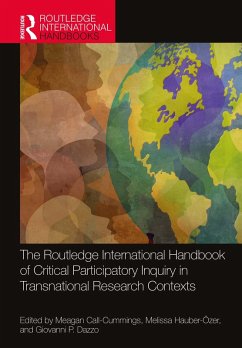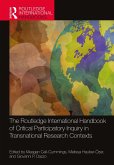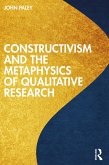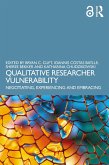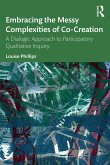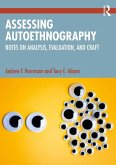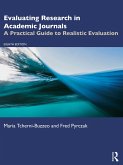The Routledge International Handbook of Critical Participatory Inquiry in Transnational Research Contexts (eBook, PDF)
Redaktion: Call-Cummings, Meagan; Dazzo, Giovanni P.; Hauber-Özer, Melissa
45,95 €
45,95 €
inkl. MwSt.
Sofort per Download lieferbar

23 °P sammeln
45,95 €
Als Download kaufen

45,95 €
inkl. MwSt.
Sofort per Download lieferbar

23 °P sammeln
Jetzt verschenken
Alle Infos zum eBook verschenken
45,95 €
inkl. MwSt.
Sofort per Download lieferbar
Alle Infos zum eBook verschenken

23 °P sammeln
The Routledge International Handbook of Critical Participatory Inquiry in Transnational Research Contexts (eBook, PDF)
Redaktion: Call-Cummings, Meagan; Dazzo, Giovanni P.; Hauber-Özer, Melissa
- Format: PDF
- Merkliste
- Auf die Merkliste
- Bewerten Bewerten
- Teilen
- Produkt teilen
- Produkterinnerung
- Produkterinnerung

Bitte loggen Sie sich zunächst in Ihr Kundenkonto ein oder registrieren Sie sich bei
bücher.de, um das eBook-Abo tolino select nutzen zu können.
Hier können Sie sich einloggen
Hier können Sie sich einloggen
Sie sind bereits eingeloggt. Klicken Sie auf 2. tolino select Abo, um fortzufahren.

Bitte loggen Sie sich zunächst in Ihr Kundenkonto ein oder registrieren Sie sich bei bücher.de, um das eBook-Abo tolino select nutzen zu können.
This book illustrates how research guided by the emancipatory epistemology of critical participatory inquiry (CPI) can support social change in transnational contexts, which are inherently laden with unequal power dynamics and colonial structures.
- Geräte: PC
- mit Kopierschutz
- eBook Hilfe
Andere Kunden interessierten sich auch für
![The Routledge International Handbook of Critical Participatory Inquiry in Transnational Research Contexts (eBook, ePUB) The Routledge International Handbook of Critical Participatory Inquiry in Transnational Research Contexts (eBook, ePUB)]() The Routledge International Handbook of Critical Participatory Inquiry in Transnational Research Contexts (eBook, ePUB)45,95 €
The Routledge International Handbook of Critical Participatory Inquiry in Transnational Research Contexts (eBook, ePUB)45,95 €![Constructivism and the Metaphysics of Qualitative Research (eBook, PDF) Constructivism and the Metaphysics of Qualitative Research (eBook, PDF)]() John PaleyConstructivism and the Metaphysics of Qualitative Research (eBook, PDF)45,95 €
John PaleyConstructivism and the Metaphysics of Qualitative Research (eBook, PDF)45,95 €![Qualitative Researcher Vulnerability (eBook, PDF) Qualitative Researcher Vulnerability (eBook, PDF)]() Qualitative Researcher Vulnerability (eBook, PDF)42,95 €
Qualitative Researcher Vulnerability (eBook, PDF)42,95 €![Embracing the Messy Complexities of Co-Creation (eBook, PDF) Embracing the Messy Complexities of Co-Creation (eBook, PDF)]() Louise PhillipsEmbracing the Messy Complexities of Co-Creation (eBook, PDF)37,95 €
Louise PhillipsEmbracing the Messy Complexities of Co-Creation (eBook, PDF)37,95 €![Assessing Autoethnography (eBook, PDF) Assessing Autoethnography (eBook, PDF)]() Andrew F. HerrmannAssessing Autoethnography (eBook, PDF)41,95 €
Andrew F. HerrmannAssessing Autoethnography (eBook, PDF)41,95 €![Writing Literature Reviews (eBook, PDF) Writing Literature Reviews (eBook, PDF)]() Melisa C. GalvanWriting Literature Reviews (eBook, PDF)66,95 €
Melisa C. GalvanWriting Literature Reviews (eBook, PDF)66,95 €![Evaluating Research in Academic Journals (eBook, PDF) Evaluating Research in Academic Journals (eBook, PDF)]() Maria Tcherni-BuzzeoEvaluating Research in Academic Journals (eBook, PDF)60,95 €
Maria Tcherni-BuzzeoEvaluating Research in Academic Journals (eBook, PDF)60,95 €-
-
-
This book illustrates how research guided by the emancipatory epistemology of critical participatory inquiry (CPI) can support social change in transnational contexts, which are inherently laden with unequal power dynamics and colonial structures.
Dieser Download kann aus rechtlichen Gründen nur mit Rechnungsadresse in A, B, BG, CY, CZ, D, DK, EW, E, FIN, F, GR, HR, H, IRL, I, LT, L, LR, M, NL, PL, P, R, S, SLO, SK ausgeliefert werden.
Produktdetails
- Produktdetails
- Verlag: Taylor & Francis eBooks
- Seitenzahl: 322
- Erscheinungstermin: 3. November 2023
- Englisch
- ISBN-13: 9781000984347
- Artikelnr.: 68874856
- Verlag: Taylor & Francis eBooks
- Seitenzahl: 322
- Erscheinungstermin: 3. November 2023
- Englisch
- ISBN-13: 9781000984347
- Artikelnr.: 68874856
- Herstellerkennzeichnung Die Herstellerinformationen sind derzeit nicht verfügbar.
Meagan Call-Cummings (PhD, Indiana University Bloomington) is an Associate Professor of Education at the Johns Hopkins University School of Education. Dr Call-Cummings focuses on critical, participatory, and feminist approaches to qualitative inquiry. Her writing attends to questions of ethics and validity and how those intersect in the practice of participatory research. Melissa Hauber-Özer is an Assistant Professor of Qualitative Inquiry at the University of Missouri, where she teaches courses on qualitative research methods, critical participatory inquiry, and language acquisition research. Dr Hauber-Özer's research employs critical participatory, ethnographic, and narrative methodologies to examine issues of educational access and equity for linguistically and culturally diverse learners. Giovanni P. Dazzo is an Assistant Professor of Qualitative Research and Evaluation Methodologies at the University of Georgia. His research agenda includes exploring restorative forms of inquiry, testing pedagogical practices to teach critical methodologies, and participatory policymaking. He is interested in community-based partnerships that ensure evidence is utilized in ways that learn from and benefit communities subjected to structural violence, racism, and abuse.
Introduction
Meagan Call-Cummings, Melissa Hauber-Özer, Giovanni P. Dazzo
Methodological Roots of Transnational Critical Participatory Inquiry
1. Feminist Participatory Action Research (FPAR) for transnational feminism
in Asia and the Pacific
Trimita Chakma, Naomi Joy Godden, Kavita Naidu, Alma Sinumlag, Naw Hel Lay
Paw
2. Critical "Worlding" through Digital CPI: Interrogating Dominant
Imaginaries of the 2002 Godhra Riots
Melissa DeLury
3. Multimodal Online Participatory Methods for Co-creating Knowledge of
Children's Migratory and Educational Trajectories
Maxie Gluckman
4. Endarkened Feminism as/in Critical Participatory Inquiry: Lessons from
First-Generation Women of the African Diaspora
Sharrell Hassell-Goodman, Ayondela McDole, Shauna Rigaud, Yulanda L.
McCarty-Harris, Jazmine Clifton, Rukan Said, and Rochelle Davidson Mhonde
5. Participatory Public Education Research: Limits, Possibilities, and
Re-Imagination of Critical Participatory Inquiry (CPI)
Aakriti Kapoor, Amie Presley, Stefanie De Jesus, Tanitiã Munroe
6. Participatory Arts-Based Research Among Refugee Children in Malaysia
Charity Lee
7. Negotiating students' identities and promoting agency through Critical
Discourse Analysis
Konstantinos Sipitanos
8. Critical Youth Participatory Action Research as a praxis in exploring
Education for Forcibly Displaced Young People in South Sudan, Jordan, and
the U.K.
Jessica Oddy
9. Exploring Commitments to Participatory Inquiry in Transnational Research
Karen Ross and Melissa Hauber-Özer
Power and Positionality in Transnational Critical Participatory Inquiry
10. Intertwining the Personal, Relational, and Theoretical in Participatory
Collaborative Analysis
Bethany Monea, Mikaela Pozo, and Joselyn Andrade
11. Doing YPAR Within Korean Cultural Contexts: Contending with Power
Dynamics in Sunbae-Hoobae Relationship
Woohee Kim and Jeung Eum Woo
12. Examining Research Positionality - Understanding Self as a First Step
to Transnational Research
Colleen McMillan, Alexander Kwarteng, Kristi Kenyon
13. Positionality, Power, and Presence as Methodological Praxis in
Transnational Educational Collaboration
Nuntiya Doungphummes and Mark Vicars
14. Young Urban Women Reclaiming Identities: Experiences from a
Multi-Country Research Project
Nirupama Sarathy, Rita Mishra, and Indira Rani
15. Transnational Participatory Research: Reflections and insights from a
longitudinal project in India
Payal Shah, Meagan Call-Cummings, Melissa DeLury
Ethics and Validity in the Context of Transnational Critical Participatory
Inquiry
16. Transnational Migration and Research Ethics: Anonymization,
Confidentiality, and Consent with Undocumented and Refugee Youth
Karamjeet K. Dhillon, Kaitlin E. Popielarz, and Jasmine B. Ulmer
17. Kuwentuhan Across Generations: Intergenerational Participatory Methods
in Exploring Filipino Immigrant and Filipino American Transnational
Experiences
Valerie Francisco-Menchavez and Edwin Carlos
18. Transnational CPI with Syrian Refugees in Turkey
Melissa Hauber Özer
19. De/centering De/coloniality: A Dialectic Critique on the Ethics of
Participation
Giovanni P. Dazzo
20. Ethical Considerations in a People Centered Approach to Peacemaking:
The Case of Georgian-South Ossetian Peace Efforts
Susan Allen, Meagan Call-Cummings, Melissa DeLury
21. Being Disloyal to Privilege: The Ethics of Participatory Grantmaking
and Inquiry with/alongside Trans and Gender-diverse Social Movements
Kerry Ashforth, Giovanni P. Dazzo
Meagan Call-Cummings, Melissa Hauber-Özer, Giovanni P. Dazzo
Methodological Roots of Transnational Critical Participatory Inquiry
1. Feminist Participatory Action Research (FPAR) for transnational feminism
in Asia and the Pacific
Trimita Chakma, Naomi Joy Godden, Kavita Naidu, Alma Sinumlag, Naw Hel Lay
Paw
2. Critical "Worlding" through Digital CPI: Interrogating Dominant
Imaginaries of the 2002 Godhra Riots
Melissa DeLury
3. Multimodal Online Participatory Methods for Co-creating Knowledge of
Children's Migratory and Educational Trajectories
Maxie Gluckman
4. Endarkened Feminism as/in Critical Participatory Inquiry: Lessons from
First-Generation Women of the African Diaspora
Sharrell Hassell-Goodman, Ayondela McDole, Shauna Rigaud, Yulanda L.
McCarty-Harris, Jazmine Clifton, Rukan Said, and Rochelle Davidson Mhonde
5. Participatory Public Education Research: Limits, Possibilities, and
Re-Imagination of Critical Participatory Inquiry (CPI)
Aakriti Kapoor, Amie Presley, Stefanie De Jesus, Tanitiã Munroe
6. Participatory Arts-Based Research Among Refugee Children in Malaysia
Charity Lee
7. Negotiating students' identities and promoting agency through Critical
Discourse Analysis
Konstantinos Sipitanos
8. Critical Youth Participatory Action Research as a praxis in exploring
Education for Forcibly Displaced Young People in South Sudan, Jordan, and
the U.K.
Jessica Oddy
9. Exploring Commitments to Participatory Inquiry in Transnational Research
Karen Ross and Melissa Hauber-Özer
Power and Positionality in Transnational Critical Participatory Inquiry
10. Intertwining the Personal, Relational, and Theoretical in Participatory
Collaborative Analysis
Bethany Monea, Mikaela Pozo, and Joselyn Andrade
11. Doing YPAR Within Korean Cultural Contexts: Contending with Power
Dynamics in Sunbae-Hoobae Relationship
Woohee Kim and Jeung Eum Woo
12. Examining Research Positionality - Understanding Self as a First Step
to Transnational Research
Colleen McMillan, Alexander Kwarteng, Kristi Kenyon
13. Positionality, Power, and Presence as Methodological Praxis in
Transnational Educational Collaboration
Nuntiya Doungphummes and Mark Vicars
14. Young Urban Women Reclaiming Identities: Experiences from a
Multi-Country Research Project
Nirupama Sarathy, Rita Mishra, and Indira Rani
15. Transnational Participatory Research: Reflections and insights from a
longitudinal project in India
Payal Shah, Meagan Call-Cummings, Melissa DeLury
Ethics and Validity in the Context of Transnational Critical Participatory
Inquiry
16. Transnational Migration and Research Ethics: Anonymization,
Confidentiality, and Consent with Undocumented and Refugee Youth
Karamjeet K. Dhillon, Kaitlin E. Popielarz, and Jasmine B. Ulmer
17. Kuwentuhan Across Generations: Intergenerational Participatory Methods
in Exploring Filipino Immigrant and Filipino American Transnational
Experiences
Valerie Francisco-Menchavez and Edwin Carlos
18. Transnational CPI with Syrian Refugees in Turkey
Melissa Hauber Özer
19. De/centering De/coloniality: A Dialectic Critique on the Ethics of
Participation
Giovanni P. Dazzo
20. Ethical Considerations in a People Centered Approach to Peacemaking:
The Case of Georgian-South Ossetian Peace Efforts
Susan Allen, Meagan Call-Cummings, Melissa DeLury
21. Being Disloyal to Privilege: The Ethics of Participatory Grantmaking
and Inquiry with/alongside Trans and Gender-diverse Social Movements
Kerry Ashforth, Giovanni P. Dazzo
Introduction
Meagan Call-Cummings, Melissa Hauber-Özer, Giovanni P. Dazzo
Methodological Roots of Transnational Critical Participatory Inquiry
1. Feminist Participatory Action Research (FPAR) for transnational feminism
in Asia and the Pacific
Trimita Chakma, Naomi Joy Godden, Kavita Naidu, Alma Sinumlag, Naw Hel Lay
Paw
2. Critical "Worlding" through Digital CPI: Interrogating Dominant
Imaginaries of the 2002 Godhra Riots
Melissa DeLury
3. Multimodal Online Participatory Methods for Co-creating Knowledge of
Children's Migratory and Educational Trajectories
Maxie Gluckman
4. Endarkened Feminism as/in Critical Participatory Inquiry: Lessons from
First-Generation Women of the African Diaspora
Sharrell Hassell-Goodman, Ayondela McDole, Shauna Rigaud, Yulanda L.
McCarty-Harris, Jazmine Clifton, Rukan Said, and Rochelle Davidson Mhonde
5. Participatory Public Education Research: Limits, Possibilities, and
Re-Imagination of Critical Participatory Inquiry (CPI)
Aakriti Kapoor, Amie Presley, Stefanie De Jesus, Tanitiã Munroe
6. Participatory Arts-Based Research Among Refugee Children in Malaysia
Charity Lee
7. Negotiating students' identities and promoting agency through Critical
Discourse Analysis
Konstantinos Sipitanos
8. Critical Youth Participatory Action Research as a praxis in exploring
Education for Forcibly Displaced Young People in South Sudan, Jordan, and
the U.K.
Jessica Oddy
9. Exploring Commitments to Participatory Inquiry in Transnational Research
Karen Ross and Melissa Hauber-Özer
Power and Positionality in Transnational Critical Participatory Inquiry
10. Intertwining the Personal, Relational, and Theoretical in Participatory
Collaborative Analysis
Bethany Monea, Mikaela Pozo, and Joselyn Andrade
11. Doing YPAR Within Korean Cultural Contexts: Contending with Power
Dynamics in Sunbae-Hoobae Relationship
Woohee Kim and Jeung Eum Woo
12. Examining Research Positionality - Understanding Self as a First Step
to Transnational Research
Colleen McMillan, Alexander Kwarteng, Kristi Kenyon
13. Positionality, Power, and Presence as Methodological Praxis in
Transnational Educational Collaboration
Nuntiya Doungphummes and Mark Vicars
14. Young Urban Women Reclaiming Identities: Experiences from a
Multi-Country Research Project
Nirupama Sarathy, Rita Mishra, and Indira Rani
15. Transnational Participatory Research: Reflections and insights from a
longitudinal project in India
Payal Shah, Meagan Call-Cummings, Melissa DeLury
Ethics and Validity in the Context of Transnational Critical Participatory
Inquiry
16. Transnational Migration and Research Ethics: Anonymization,
Confidentiality, and Consent with Undocumented and Refugee Youth
Karamjeet K. Dhillon, Kaitlin E. Popielarz, and Jasmine B. Ulmer
17. Kuwentuhan Across Generations: Intergenerational Participatory Methods
in Exploring Filipino Immigrant and Filipino American Transnational
Experiences
Valerie Francisco-Menchavez and Edwin Carlos
18. Transnational CPI with Syrian Refugees in Turkey
Melissa Hauber Özer
19. De/centering De/coloniality: A Dialectic Critique on the Ethics of
Participation
Giovanni P. Dazzo
20. Ethical Considerations in a People Centered Approach to Peacemaking:
The Case of Georgian-South Ossetian Peace Efforts
Susan Allen, Meagan Call-Cummings, Melissa DeLury
21. Being Disloyal to Privilege: The Ethics of Participatory Grantmaking
and Inquiry with/alongside Trans and Gender-diverse Social Movements
Kerry Ashforth, Giovanni P. Dazzo
Meagan Call-Cummings, Melissa Hauber-Özer, Giovanni P. Dazzo
Methodological Roots of Transnational Critical Participatory Inquiry
1. Feminist Participatory Action Research (FPAR) for transnational feminism
in Asia and the Pacific
Trimita Chakma, Naomi Joy Godden, Kavita Naidu, Alma Sinumlag, Naw Hel Lay
Paw
2. Critical "Worlding" through Digital CPI: Interrogating Dominant
Imaginaries of the 2002 Godhra Riots
Melissa DeLury
3. Multimodal Online Participatory Methods for Co-creating Knowledge of
Children's Migratory and Educational Trajectories
Maxie Gluckman
4. Endarkened Feminism as/in Critical Participatory Inquiry: Lessons from
First-Generation Women of the African Diaspora
Sharrell Hassell-Goodman, Ayondela McDole, Shauna Rigaud, Yulanda L.
McCarty-Harris, Jazmine Clifton, Rukan Said, and Rochelle Davidson Mhonde
5. Participatory Public Education Research: Limits, Possibilities, and
Re-Imagination of Critical Participatory Inquiry (CPI)
Aakriti Kapoor, Amie Presley, Stefanie De Jesus, Tanitiã Munroe
6. Participatory Arts-Based Research Among Refugee Children in Malaysia
Charity Lee
7. Negotiating students' identities and promoting agency through Critical
Discourse Analysis
Konstantinos Sipitanos
8. Critical Youth Participatory Action Research as a praxis in exploring
Education for Forcibly Displaced Young People in South Sudan, Jordan, and
the U.K.
Jessica Oddy
9. Exploring Commitments to Participatory Inquiry in Transnational Research
Karen Ross and Melissa Hauber-Özer
Power and Positionality in Transnational Critical Participatory Inquiry
10. Intertwining the Personal, Relational, and Theoretical in Participatory
Collaborative Analysis
Bethany Monea, Mikaela Pozo, and Joselyn Andrade
11. Doing YPAR Within Korean Cultural Contexts: Contending with Power
Dynamics in Sunbae-Hoobae Relationship
Woohee Kim and Jeung Eum Woo
12. Examining Research Positionality - Understanding Self as a First Step
to Transnational Research
Colleen McMillan, Alexander Kwarteng, Kristi Kenyon
13. Positionality, Power, and Presence as Methodological Praxis in
Transnational Educational Collaboration
Nuntiya Doungphummes and Mark Vicars
14. Young Urban Women Reclaiming Identities: Experiences from a
Multi-Country Research Project
Nirupama Sarathy, Rita Mishra, and Indira Rani
15. Transnational Participatory Research: Reflections and insights from a
longitudinal project in India
Payal Shah, Meagan Call-Cummings, Melissa DeLury
Ethics and Validity in the Context of Transnational Critical Participatory
Inquiry
16. Transnational Migration and Research Ethics: Anonymization,
Confidentiality, and Consent with Undocumented and Refugee Youth
Karamjeet K. Dhillon, Kaitlin E. Popielarz, and Jasmine B. Ulmer
17. Kuwentuhan Across Generations: Intergenerational Participatory Methods
in Exploring Filipino Immigrant and Filipino American Transnational
Experiences
Valerie Francisco-Menchavez and Edwin Carlos
18. Transnational CPI with Syrian Refugees in Turkey
Melissa Hauber Özer
19. De/centering De/coloniality: A Dialectic Critique on the Ethics of
Participation
Giovanni P. Dazzo
20. Ethical Considerations in a People Centered Approach to Peacemaking:
The Case of Georgian-South Ossetian Peace Efforts
Susan Allen, Meagan Call-Cummings, Melissa DeLury
21. Being Disloyal to Privilege: The Ethics of Participatory Grantmaking
and Inquiry with/alongside Trans and Gender-diverse Social Movements
Kerry Ashforth, Giovanni P. Dazzo
